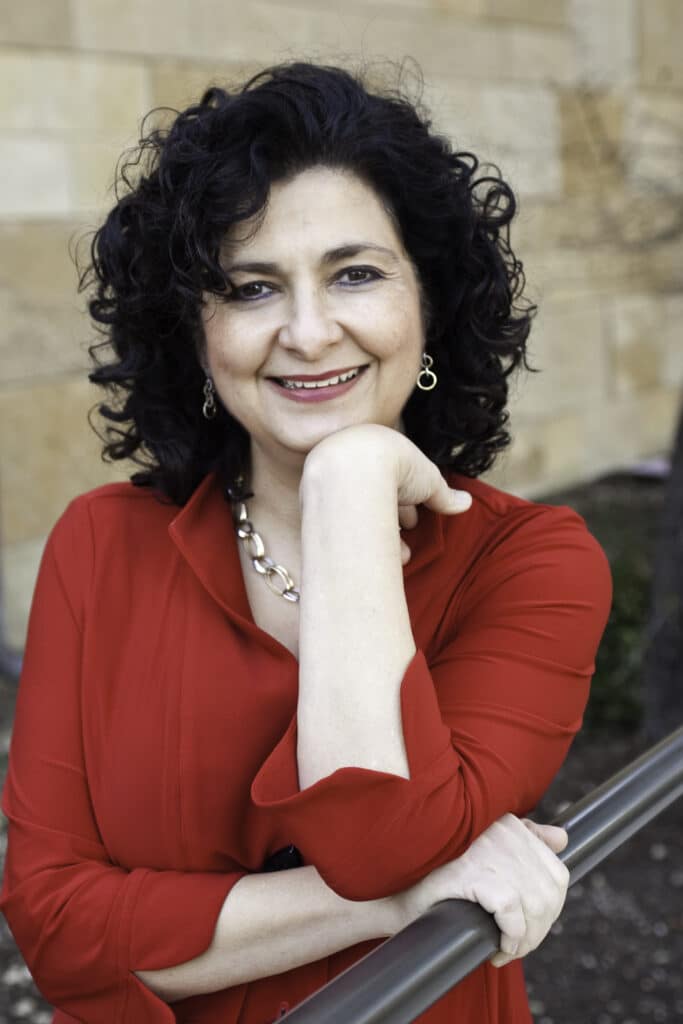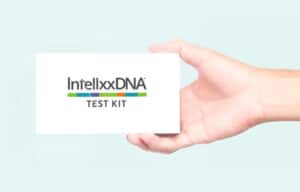This CEO Wants You to Know That DNA Is Your Roadmap, Not Your Destiny

A Conversation with Carol Bilich, cofounder and CEO of IntellxxDNA
Like so many other innovative products, IntellxxDNA was born when its founders saw a promising gap in the market. In this case, Carol Bilich and Dr. Sharon Hausman-Cohen had hoped to find targeted genomic tests that gave their patients evidence-based tactics for achieving optimal health. When they saw that such a solution didn’t exist, they did what innovators and entrepreneurs do best—they created it themselves.
Today, Carol Bilich serves as CEO of IntellxxDNA, which works through clinicians across the country to show patients how to work best with their unique genetic makeup. As Carol explains in this interview, we all contain billions of DNA nucleotides, and different variations, or polymorphisms, in this DNA create subtle differences in how our cells operate. Along with her cofounder and a growing team, Carol helps people understand their own genomic makeup and how it provides a blueprint for long-term health. She also talks about her career as a serial entrepreneur, why she sees herself as a nontraditional CEO, and the advantages of running her business from Texas.

Texas CEO: Let’s start at the beginning. Were you always interested in the medical field? Is this what you thought you’d be doing when you were a kid?
Carol Bilich: Yes and no. Since childhood, health and wellbeing were of particular interest to me. I’d strongly considered a career as a physician, but as the child of an immigrant single mother, that wasn’t in the cards for me. I pursued other interests that were within my grasp, and even had success, but I always found myself coming back to health. When I found the research on nutraceuticals and saw how something like vitamin C could be so powerful, and then when I found osteopathic and naturopathic medicine, my interest blossomed.
That aspect of medicine was, and is still, fascinating to me. I was also fueled by the awareness of my own health issues as well as those of my family and friends. For some reason I can’t explain, from high school on I was the person people sought out for health and wellness advice. I loved that people found what I had to offer worthwhile.
Texas CEO: Did you start your medical career thinking that you would eventually get into genomics?
Definitely not. I didn’t even know I could get access to any genomic information until my early 40s. But once I did, I was hooked.
By that time, I had been what is called an Integrative Manual Therapist for about 12 years. I had discovered that many of my patients had been failed by traditional Western medicine and were looking for a better understanding of what was happening with their health. Folks would come to my office and share the abundance of tests and treatments they had tried. Sometimes they’d even bring in piles of records or boxes of medications.
Having been through my own health journey, I would offer them support and some suggestions. But as more medical literature became available on the Internet, I also started doing some personalized research for them. Because I’m not a physician, all I could do was talk about what stood out to me. I would reflect on patterns that I saw and hopefully help them speak with their physicians. It worked exceptionally well.
At about year five as a practitioner, I first had the idea of an integrative practice where I would work with physicians and other practitioners to support patients and provide the kinds of personalized outcomes they were asking for.
Then, at year 20 in practice, I met Dr. Sharon Hausman-Cohen. At our first meeting, Sharon was in my office and saw an article on MTHFR, which is a pretty well-known gene variant. She asked if I knew anything about it. I asked her, “Do you?” Few doctors had shown interest in genomics at that time, and sadly it’s still slow to make its way into medicine. She had just given a talk about the MTHFR gene variant and said she’d love to share what we knew. That started everything.
We began referring to one another and collaborating. We were very successful in researching our patients’ conditions, and I shared my idea of a combined integrative practice together. She agreed.
Texas CEO: And that began your path to founding IntellxxDNA?
Carol: First, it’s important to know that we work through clinicians, because we believe it’s important for the information in a genomic report to be discussed with the patient by their healthcare provider. That clinician knows the whole story of the patient’s health.
But when we went looking for a tool that was designed to actually help someone in a clinical practice, we couldn’t find one. These tests would give the person a huge list of the different genes they might carry, but there was no way to find out which genetic variants were clinically significant or even relevant. And most importantly, there was no guidance on what to do with that information.
So, we started digging and discovered that if we could identify gene function, then we could then identify modifications tailored to the patient’s genomics using an integrative medicine approach—including diet, supplementation, and lifestyle.
But we also realized that doing this research on an individual basis for our patients was way too labor-intensive, so we decided to make it more streamlined. We essentially decided to create the solution we couldn’t find on the market. Patients started coming out of the woodwork, and then doctors followed. We couldn’t keep it to ourselves!
Texas CEO: Say I am a patient with certain health concerns and I come to you into one of your offices for testing. What kinds of information will your tests tell me?
Carol: First, it’s important to know that we work through clinicians, because we believe it’s important for the information in a genomic report to be discussed with the patient by their healthcare provider. That clinician knows the whole story of the patient’s health.
The process begins with your clinician discussing your symptoms and tailoring the tests they order to the genes related to that symptom. We do tests for chronic illnesses—diabetes, obesity, heart disease, macular degeneration, and a variety of other things. We’re also known for our brain optimization reports, which have proven effective in clinical studies to reduce cognitive decline and even Alzheimer’s symptoms. Once we know whether you have markers for certain conditions, then the clinician can personalize an approach for you.
Texas CEO: We hear a lot about genetic testing these days, like the kind that expecting mothers get, or that screens for breast cancer risk. What makes IntellxxDNA unique in that field?
Carol: The tests you’re talking about are looking for pathogenic gene variants. As you mentioned, there are, for example, BRCA gene variants, one of which is associated with a 60 to 80 percent lifetime risk of developing breast cancer.
At IntellxxDNA, we don’t look at these pathogenic gene variants, and we aren’t providing a diagnostic test. Instead, we look at a collection of gene variants called genomic SNPs, or single-nucleotide polymorphisms [pronounced “snips”]. These are points in the genome—the collection of all a person’s genes—where humans differ from another. In combination, these SNPs can indicate a susceptibility to certain chronic illnesses like depression, OCD, heart disease, and diabetes. These little SNPs are not by themselves dangerous or disease-causing like a pathogenic gene, but they can point you toward where your risk lies.
For example, SNPs that contribute to the buildup of calcium in the arteries or hardening of the arteries can contribute to heart disease. Knowing this information can help you prevent or mitigate heart disease, assuming you know what interventions work. The fact that we’re focusing on clinically relevant, evidence based modifications based on these SNPs makes IntellxxDNA unique. Not every genomic test gives you that type of reliable and repeatable information.
For example, in that same case of heart disease, the genes that contribute to calcium buildup can be modulated by vitamin K2. And of course there are lots of other foods, lifestyle choices, and supplements that help address cholesterol and inflammation. We can do this type of intervention with any issue—memory, blood sugar, even things that contribute to autism spectrum disorders.
Another thing that makes us unique is that, while we recognize the impact and importance of pharmaceuticals, our focus is on specific dietary needs, lifestyle changes, vitamins and supplements and how these all relate to gene function. As far as we are aware, we are the only clinical decision support tool designed to fit in with a functional or integrative approach to healthcare.
Physicians also have access to our database, which is a massive compendium of clinically relevant genomic information. This helps them understand the root causes of chronic illness, and use their patients’ genomics—along with the patient’s history and physical exam—to create personalized treatment and prevention plans.

Texas CEO: In the year 2021, it seems like all healthcare should be this individualized by now. Why do you think it’s not?
Carol: The traditional models of healthcare are slow to change. Given the amount of evidence out there, it’s sad that many doctors are not on board with genomic medicine. But it’s something I’m trying to change.
Donna Bragg: I know some people are hesitant to get information about their DNA. It can be scary. Is there some irony to that?
I don’t think it’s irony as much as it is fear. Some people say they would prefer to be oblivious. But if you know you have a greater propensity toward, say, heart disease and know what factors you have, you can learn how to modify them. Isn’t that more empowering?
In some tests, a person might have one SNP in their report related to Alzheimer’s or Parkinson’s and assume they’re at risk. Or if there are no SNPs in the report, they assume they are in the clear. But what they don’t realize is that this type of reporting doesn’t mean a person is necessarily at risk or free of risk. There are literally hundreds of SNPs that can be related to Parkinson’s. If you have or don’t have the one that was checked in that report, it doesn’t mean you are at risk or totally safe.
We hope to help people realize that DNA it is not destiny. Rather it’s a roadmap to optimal health. That can actually be very empowering. And it’s why we only include gene variants for which gene function is well understood, and where we can offer ways to modify these pathways.
The other reason that some people don’t want their genomics done is privacy. IntellxxDNA is not a lab. We provide the software services that allow the patient’s data to be paired with our compendium of highly curated and clinically relevant genomics data. The testing is done by a CLIA/CAP-certified lab under barcodes only—no identifying information—and the data is never sold. So, the privacy is excellent.
Texas CEO: I assume that genomic testing is constantly in a state of flux. Do you find that you have to frequently update your product?
Carol: Absolutely. We are constantly getting more information from providers who use our tests, but we are also always looking at newly published literature. And because we’re an online tool, we can add information very quickly. I would say that our research team comes across new information that’s added to the reports on almost a weekly basis.
Texas CEO: Are you surprised by the growth IntellxxDNA has seen since you founded it? How does that make you feel?
Carol: It’s like having a child that you’re watching grow. There are moments where you can’t stop beaming because they’re growing, exploring, and finding themselves along the way. We’re not exactly startup phase, but we’re starting that crucial year five, where so many companies either make it or fail. I’m seeing so many positive signs that I can’t help but be excited about it every day.
Texas CEO: You describe yourself as a non-stereotypical CEO. What makes you non-typical in this role?
To start with, my educational background is not the classic MBA story. I did have some formal business education, but a lot of my business acumen comes from having had numerous jobs in my life and from running several businesses prior to IntellxxDNA.
When I graduated from college, the economy was terrible. But I had to work, so I created work for myself. I started a mail-order business, a data-entry business, a catering company, and I even had an internationally award-winning salsa business. Even though those were all short-lived businesses, I learned a lot along the way.
The other thing is, while of course we want the business to be successful, the motivation of myself and my cofounder is to be able to remove the pain, suffering, and stigma of chronic health conditions. Genomics, I think, is the greatest equalizer of all time. I am hoping to show the world how each of us is uniquely different from inception and by design. And I’m hoping and praying we can help improve the quality of people’s lives by improving their health. After all, good health helps people make better decisions for themselves, their families, and their planet.
Certainly, every CEO has to have their own internal motivations. For myself and my cofounder, we were two women who started this last career in our 50s. We were both daughters, mothers, siblings, and healthcare providers with long careers. Our motivations come a lot from who we are and what we’ve experienced. It’s at the core of why we do what we do because we know how important good health is to everyone on the planet.
Once we started realizing the incredible successes of helping to improve the quality of people’s lives, we couldn’t quit! Let me give you a specific example. There is a group in Australia that has been using our product for neurodevelopmental issues in children on the autism spectrum for almost two years now. They’ve seen improvement in their patients’ IQs, greater socialization, and improved verbal skills. Even things like bedwetting have stopped, allowing these people to be mainstreamed in their world. It alleviates the strain of their families, too!
Texas CEO: What other innovations are you planning for the future?
Carol: Inspiration everywhere. Staying on top of the published scientific and medical literature is a big job. At the end of this year, we will launch a new report and educational training for neurodevelopmental disorders. We are constantly getting requests from our physicians and patients. We have almost 100 different topics that we plan on covering in the future. I want to help as many people as we can, especially patients with illnesses like fibromyalgia and chronic fatigue that have yet to be addressed by traditional medicine.
Texas CEO: What advice would you give to other Texas CEOs like yourself?
Carol: I’ve learned a lot along the way. I’d say that developing good listening and communication skills, along with extreme patience, is absolutely imperative in every realm of business.
Surround yourself with as many advisors and soundboards as you can, including other leaders in your space. You’ll often find that they are supportive and will become great colleagues who are willing to share their knowledge and wisdom and contacts.
Take real breaks so you can come back with enthusiasm and energy. And make them real breaks, not where you’re checking email or saying “Oh, I’ll just make this one phone call.”
Listen to other founders’ stories so that you know that when you come across the road bumps or potential barriers, which you inevitably will, you will know that this is normal and that you can overcome them.
When you’re working to make change or to empower others or—to borrow a word from The Simpsons—to embiggen people, you often meet with resistance from some big players. I’ve been very surprised and often disheartened by that. It’s a hard, hard path. Take care of yourself, always. Surround yourself with believers and supports as you make your way.
It’s also important to stay in discovery mode. I like to do small tests until I can identify whether or not something is going to work. It’s an important key to being innovative. I might see something in a magazine or a book or a flyer from a supermarket chain that will inspire me to do something different in my own company. I’m a very curious person.
Texas CEO: What is the greatest advantage to having your business here in Texas?
Carol: I’m partial to Texas because even though I was born to immigrant parents, I was born and raised in Texas. It’s been a place of opportunity for my family and myself and its where my family of origin still lives and where I raised my family. So, for me, Texas is home. But looking a little further to the Texas advantage, it’s a wonderful location for many aspects of business and hosting conferences. We have wonderful business and educational resources and with Austin fast becoming a start-up mecca, more people are open to new ideas and innovation. We’re also surrounded by people who want to see you do well, which is really important.



2 Comments
I found this article fascinating! I hope the very best for Carol; she seems to have a big heart and a head for business. Thank you
Being aware of IntellxxDNA services, I’ve enjoyed learning from this interview more about the details of the company and its operations and to realize the “classic MBA story” is not always necessary for success in business.